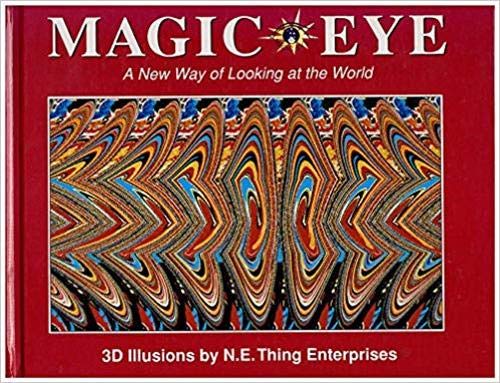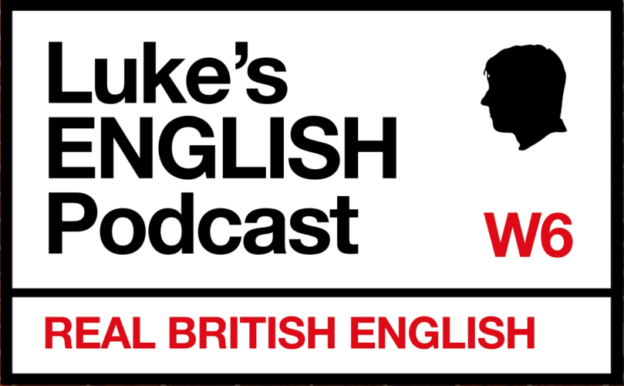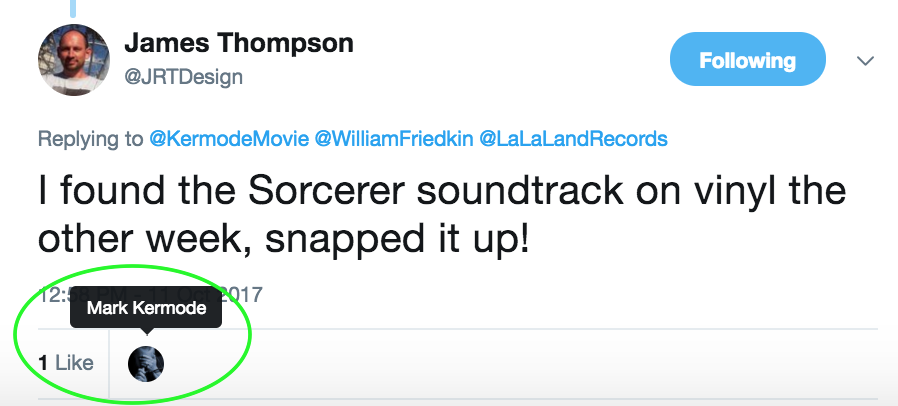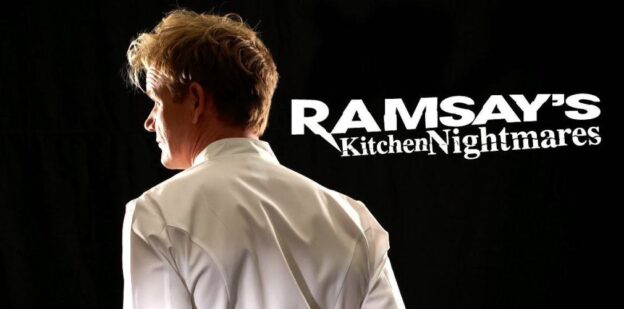In this episode I’m joined by Jennifer – a podcaster from the USA, and we test each other on our knowledge of slang from our countries. Listen and learn some informal words from British and American English. Notes & definitions below.
![]() [DOWNLOAD]
[DOWNLOAD]
Introduction
Hello folks,
How are you? I hope you’re well.
Here’s a new episode and in this one I’ve got a guest. I’m talking to Jennifer from the English Across the Pond podcast. You’re going to hear a mix of both British and American English and you can learn some slang from both sides of the Atlantic. Also you can find out about Jen, her podcast, and the other language learning services that she offers to you, with her co-host Dan on their podcast and also through their website. More on that in a moment.
But first let me give you a little bit of news here before we get started properly.
A little bit of news before we get started properly
If you’re a subscriber to my email list then you will have received an email from me recently with a link to a post that I published on my website. Did you get that email? Did you click the link? Normally emails from me just contain a link to a new episode, but sometimes I send you other stuff, like posts on my website which you might find interesting.
Basically in that recent post I said a couple of things. One of them was that February might be a bit quiet for the normal podcast – I mean, these free episodes (because there’s the free podcast and the premium podcast, you see). This is the second episode I’ve uploaded in February, and this might be it for February actually, on the free podcast and that’s because I’m focusing on LEP premium this month in order to make up for the lack of premium episodes in January.
So if you’re a premium subscriber you’ll see that you’ve been getting new episodes regularly and that’s going to continue throughout the month but the number of normal free episodes will be a bit lower.
Now, this means that all the free subscribers can just catch up on all the episodes I’ve uploaded since the start of the year (which is quite a lot) but if you want more you could just wait a bit for some new ones to come along, or you could consider signing up for the growing library of premium stuff.
New premium episodes this month include ones covering vocab & grammar from my recent conversation with Zdenek Lukas. I picked out over 40 bits of target language for you to learn from that, and so there are about 4 parts to that episode. Then, in the pipeline I’ve got premium episodes focusing on language from the Paul Chowdhry episode and the recent episode with James. Tons of language for you to learn. This is all stuff you’ve heard on the podcast, but I’m doing all the work of explaining, clarifying and demonstrating the language and also drilling it for pronunciation and all that – all to help you not just hear it but properly learn it. I do all that work so you don’t have to. To subscribe to my premium content, go to www.teacherluke.co.uk/premium
The other thing I wrote about in that recent website post was that I was featured in an episode of the Rock n’ Roll English Podcast. Do you remember Martin and Dan from episode 490. They’re the guys from Rock n’ Roll English, which is another British English podcast. Just recently they had me on one of their episodes and we talked again about how to handle awkward social situations (like we did the first time I was on their podcast), and we covered some pretty funny and fairly disgusting topics, including the ins and outs of giving up your seat on the tube, how long you should hold a door open for someone and how to deal with poo smells in public toilets. Yes, the poo thing is a subject that quite regularly comes up in their episodes.
Anyway, check the episode archive on my website for the recent website post about Rock n Roll English and that’s where you can find the relevant links to listen to that.
Click here to read that post and listen to the episode of RnR English.
Now then, onto this new episode of Luke’s English Podcast…
This is another collaboration with a fellow podcaster. There are quite a few of us out there in podcastland and from time to time we invite each other onto our respective podcasts as you will have noticed.
This time I’m talking to Jennifer from English Across the Pond. Some of you will be familiar with English Across the Pond – it’s another podcast for learners of English, hosted by Jen in the USA and Dan in the UK (that’s another Dan – not Dan from the RnR English Podcast). They do weekly episodes focusing on different topics and you can listen to their conversations which include both British and American English.
In this episode you’ll hear me talking to Jen via Skype (she was in California), and we chose to focus on slang words in British and American English.
UK vs USA Slang Game
We decided it might be interesting to see how much of each other’s slang words we know by playing a kind of UK vs US Slang Game.
What do you think will be the result?
So we both prepared a list of 5 slang words and prepared to test each other, and that’s what you’re going to hear.
There’s a bit of chat between the two of us first, so you can get to know Jen a little bit and then we get stuck into the slang game.
As you listen, see if you can play along with us. Do you know all the words in this game?
Keep listening to hear the words explained, defined and demonstrated. I have a feeling that long-term listeners to my podcast might know some of the British ones because I’ve probably dealt with them in previous episodes of this podcast, but do you know all of them? And how about the American English slang words you’re going to hear?
All the answers to the slang game are on the page for this episode if you want to see them.
And also keep listening until the end to find out about a nice offer that Jen and Dan have for you in terms of the learning English content that they are providing on their website.
Anyway, I hope you’re ready for some real slang from both sides of the pond.
So without any further ado, let’s get started.
Answers to the slang game
British English
1. Buff (adj)
You’re looking buff, have you been working out?
Meaning = muscular, toned
2. give me / let me have a butcher’s at that thing (noun)
Giz a butcher’s at that new phone of yours = give me a look at that new phone of yours
Meaning = Give me a look
It’s cockney rhyming slang. “A butcher’s hook” = a look.
3. Chuffed (adj)
I’m really chuffed to bits to have won the prize.
When my daughter does something for herself she always looks so chuffed.
Meaning = pleased, or pleased with yourself
4. Gutted (adj)
How do you feel to have lost the match today?
I’m absolutely gutted to be honest.
Meaning = very disappointed
- How would you feel if these things happened? Chuffed or gutted?
Dan wins a podcasting award, but you don’t.
Tom Cruise crashes his car into your house.
5. Knackered (adj)
I’m absolutely knackered this evening.
I had an absolutely awful day at work today. I had to work a 12 hour shift with no break. I’m knackered. I’m just going to go straight to bed.
Meaning = very tired, exhausted
USA slang words (California specific)
1. a grippa somethin’ (a grip of something)
You must have a grippa toys in your house at the moment.
I have a grippa things to do today.
I have a grippa work that I need to get done today.
It feels good when we get a grippa things done.
Meaning = a lot of
2. To rock something (clothing)
You’re rocking some fresh sneakers.
I’m rocking this fresh cardigan.
I’m rocking some dope corduroy pants (trousers) this afternoon.
My brother rocks a cowboy hat.
Meaning: To wear some stylish clothes
3. To post up somewhere
If you want to go into that shop, I’ll just post up here and wait for you.
I like to just post up at the beach all day long and enjoy the sun.
Meaning: To stay somewhere for a while and hang out.
4. To flip a bitch
Hey, at the next light, flip a bitch.
Meaning = To do a U-turn (to turn around 180 degrees)
5. To trip out
I was tripping out because I thought I saw you at the restaurant yesterday but I thought “He’s not here. He’s not in Southern California.”
Meaning = to be confused
Outtro
So there you have it.
Now, if you liked what you heard there and you’d like to hear more, you could check out English Across the Pond – they have weekly podcast episodes, but also you could consider signing up for their Gold Membership Package, which includes loads of cool stuff to help you learn English with Jen and Dan.
I’m just telling you about this because you might be interested in what they have to offer. So here is some info that might be of interest to you, plus a couple of freebies (that means free things)
So you heard Jen mention this near the end of the conversation there.
Basically, if you sign up with their membership package, every week they send you a learning plan which contains loads of exercises, activities, tests, vocabulary lists, grammar explanations and also a speaking task and a writing task each week with real feedback from Dan and Jen. So, each week their members get a study plan with all those things.
Jen and Dad have set up a little freebie for any LEPsters that choose to become members, and that’s two free study plans if you sign up within the first week of this episode being published.
So, sign up and you’ll start to receive their weekly study plans and if you sign up within one week of the publication date of this episode you will get two extra study plans as a free gift.
So, if you’re interested just click the link on the page for this episode (below) or go to https://www.teacherluke.co.uk/eatp
Click here to become an English Across the Pond Gold Member + 2 free study plans
(offer valid within the first week of this episode)
Alrighty then.
So I hope you’re doing fine out there in podcastland.
Don’t forget to check the page for this episode on the website for all the slang you heard here.
Remember LEP will be a bit quiet in February, but LEP Premium is quite busy this month so consider signing up for that. You’ll see it’s very reasonably priced, because I am a very reasonable man.
I’ll speak to you again on the podcast soon.
Bye!



 Bill’s plane story
Bill’s plane story Bill talks to you like you’re his buddy and you’re both sitting down having a drink in a bar or something, and therefore there is a lot of swearing as you would expect in that kind of situation. I’m not suggesting you should talk like this, and swear like this. But I think it’s not a bad idea to be able to understand it and to hear some typical swearing from someone like Bill.
Bill talks to you like you’re his buddy and you’re both sitting down having a drink in a bar or something, and therefore there is a lot of swearing as you would expect in that kind of situation. I’m not suggesting you should talk like this, and swear like this. But I think it’s not a bad idea to be able to understand it and to hear some typical swearing from someone like Bill.







